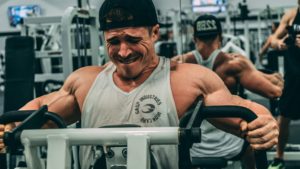
How to Scientifically Sequence Your Exercises
Think of your most stubborn muscle group that’s so painfully small despite how hard you train it. Perhaps, it’s your narrow back, your chopstick calves, or your flat butt.
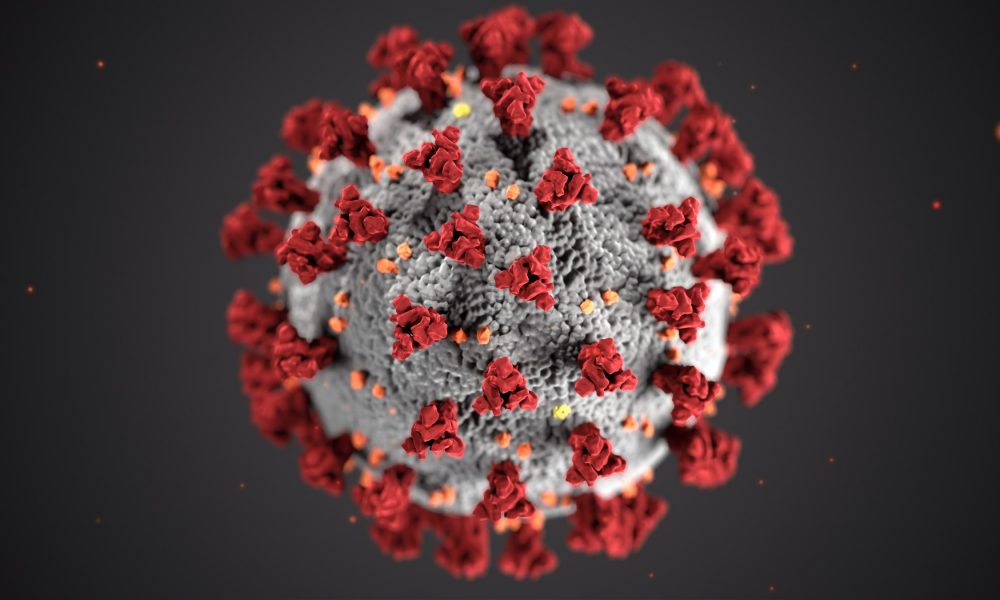
This article was written during the 2020 Coronavirus Pandemic. If you’re reading from the future, let me recap this era for you quickly.
Early 2020, the world flipped upside down over a new virus and life got really bad. Not like zombie apocalypse inflicting poison damage to children bad, but more like quarantined at home without gym access bad. Both pretty scary if you ask me, but the point is, this period in history sucked for many people’s physical/mental health along with the massive economic damage.
That being said, this immune system article is useful whether we’re going through a pandemic or not, so take these tips seriously.
One last thing before we get started. This is the type of article where I should remind you that this is not formal medical advice. If you’re sick, ill, compromised, or got bit by a werewolf, you should consult with your doctor or go to the hospital. If you didn’t already know that, you should grow a pair of common sense first.
With all that out of the way, let’s get into the article!
So you might’ve seen lots of ads about products promising to annihilate or shield your body from the Coronavirus or Covid-19 (alternative sciency word for Coronavirus). These products often over-exaggerate claims or just flat out lie because preying on people’s fear for money is unfortunately common in this twisted world.
Truth is, there’s just currently no vaccine or antidote that’ll completely prevent or kill off the Coronavirus. There might be some promising spells and potions at Hogwarts, but most of us aren’t cool enough to access that castle, let alone know where it’s located.
So consequently, humanity is left with it’s physiological defense mechanism known as the immune system. By definition, our immune system is there to protect our not so wise human race from diseases. And while the Coronavirus is novel, we know undoubtedly, a strong immune system can at least fight off the endless common sicknesses that numerous people die from daily (6).
This is an important message because so many health and fitness professionals I see have debunked anti-Coronavirus supplements so passionately that they’ve left a completely hopeless message of “Nothing scientifically stops Coronavirus, so you’re all helpless sacks of impending doom.”
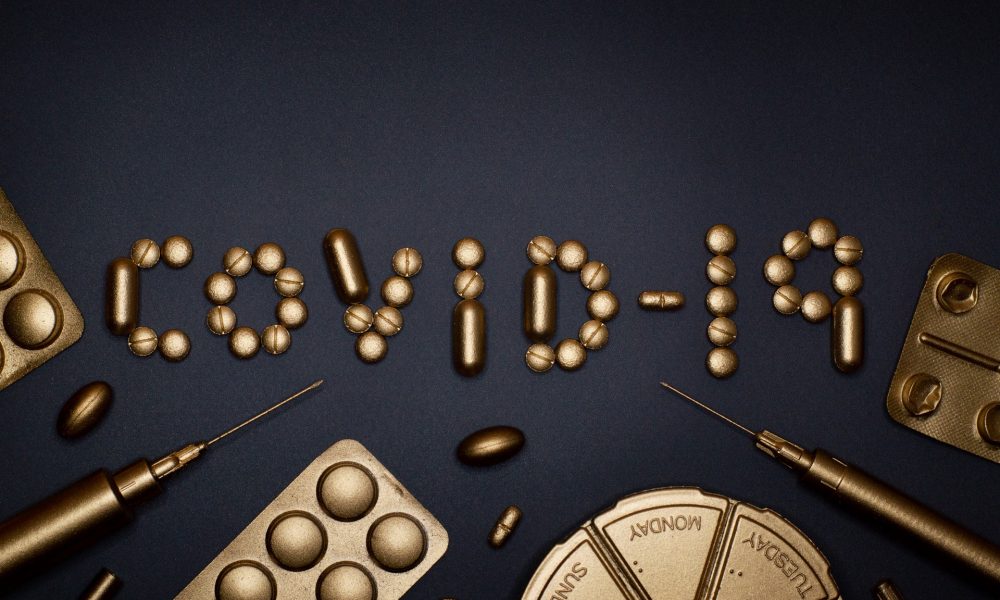
These same dorks are also the ones yapping about how the immune system can’t technically be boosted because enforcing the logistics of their textbook terms apparently feeds them their self-worth.
The practical implications are different though and it should be quite obvious. Let me explain.
It’s true that you can’t technically “boost” your immune system (5). However, this only applies if your immune system is healthy to start with. So if you live a healthy lifestyle and are not sick, of course injecting an IV of orange juice isn’t doing anything. Once your immune system is as healthy as it can be, anything you do beyond that is simply to maintain or support it, not boost it.
However, the problem is, most people aren’t healthy (not even close). This should be obvious with the endless obesity/health statistics or a quick glance at the shape of the average person in Walmart’s dessert aisle. And while that sounds mean, the point is, everyone has plenty of things within their control to either bring their immune system to an optimal point or at the very least support an already healthy immune system (7,8).
So while no definite promises can be made, here’s what you can do to put your immune system in the best position to succeed.
The most obvious way to avoid compromising your immune system is to not get sick in the first place. It all starts with your hands which touches everything from phones to doorknobs. Not to mention, your hands probably touch your dog’s butt when you hold him, so yeah, those palms and fingers of yours are essentially germ filled empires.
Wash those suckers frequently with soap. 20 seconds per wash is the optimal recommendation from the CDC, so don’t rush it (1).
Another obvious tip worth reminding is to not touch your face (including your eyes, nose, mouth, etc). People don’t realize how much they actually touch their face. Studies show medical professionals (the population who should know better) touch their face on average 10-23 times per hour (2,3).
Office workers are no better, touching their faces an average of 16 times per hour (4). And for people who smoke, this is another nudge to you know, stop (or at least reduce) smoking because that obviously involves lots of hand to face interaction. Plus if you didn’t already know, smoking isn’t good for your life expectancy (9). Shocker right?
A healthy diet is critical for optimal immune health, but it’s often misunderstood. People immediately think there are specific foods or nutrients that they need to overdose on, but instead the primary focus should be to cultivate a solid nutritional lifestyle as a whole.
You see, no matter how much more important a specific nutrient is for your immune function, eating beyond an optimal amount doesn’t do anything (10,11). However, being deficient in any micronutrient or macronutrient will compromise immune health (7,12,14).
So trying to add a few extra glasses of orange juice to megadose vitamin C while eating a crappy diet low in other nutrients isn’t optimizing immune health.
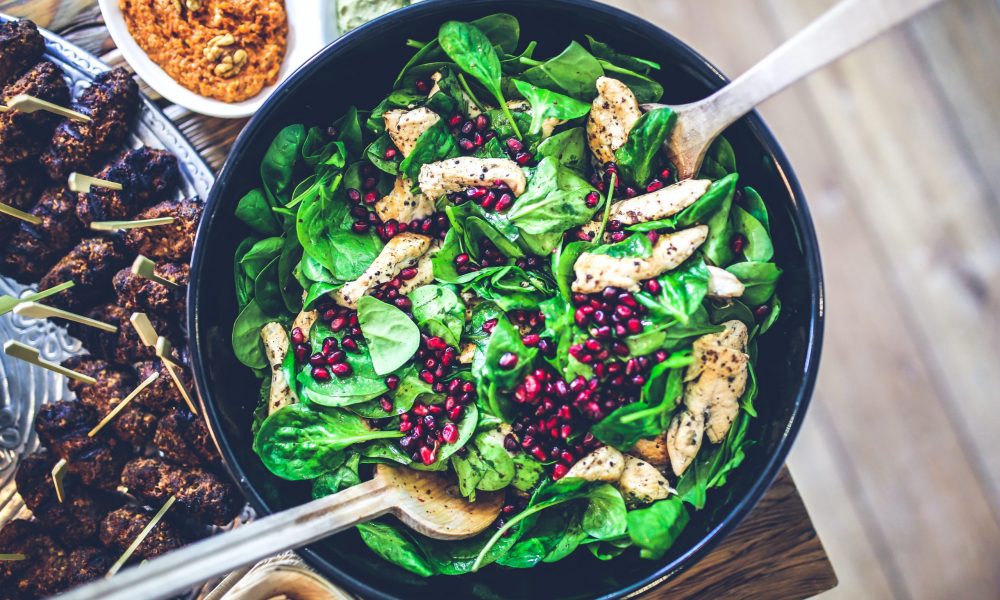
Practically speaking, to prevent most micronutrient deficiencies, you simply need to eat a diet rich in nutrient dense minimally processed foods like animals, fruits, vegetables, whole grains, legumes, nuts, etc.
To prevent macronutrient deficiencies is even simpler. Make sure you don’t eat too low of any one macro. Fats and carbs are pretty easy to consume enough of in the average Western diet, but most people need to focus on eating more protein.
Making all of these changes should also increase diet diversity and fiber intake thus improving your gut microbiome which are the microorganisms in your body who help regulate your immune system (13,81).
Long story short, if your diet resembles a child’s fast food menu, you got some adulting to do with your nutrition. For optimal immune health, you’ll eventually have to overhaul your diet towards more lean protein, fruits, vegetables, and the whole foods that you know you should be eating anyways.
If you’re already eating a healthy diet rich in minimally processed foods, you’ll likely already be getting sufficient intake of the best immune supporting nutrients. That being said, an extra focus on the following nutrients/supplements can help ensure the best bases are covered and may warrant additional consumption during times of compromise (12,14).
Vitamin C, Vitamin D, Vitamin E, and Zinc are the powerhouses when it comes to immune health. These micronutrients have been shown to protect against common illnesses, enhance the resistance to disease, and shorten many annoying symptoms in intensity and duration (15-35,88,90).
Not being deficient in any of these year-round is optimal and increasing intake of them while sick isn’t a bad idea either.
To optimize Vitamin D, you likely have to supplement daily as it’s hard to get optimal doses (36). Sun exposure is the primary way to get vitamin D as most foods don’t have much, but unless you’re getting enough sunlight to maintain a good tan, a daily supplement of a few thousand IUs is needed.
Zinc deficiency is also fairly common especially in vegans as the best zinc foods are organ meat, red meat, and shellfish. If you don’t eat those foods, 5-20mg of zinc supplementation is needed.
Vitamin C and E are actually quite easy to optimize. You’re likely already eating plenty if you eat a few servings of fruits and vegetables each day along with other whole foods.
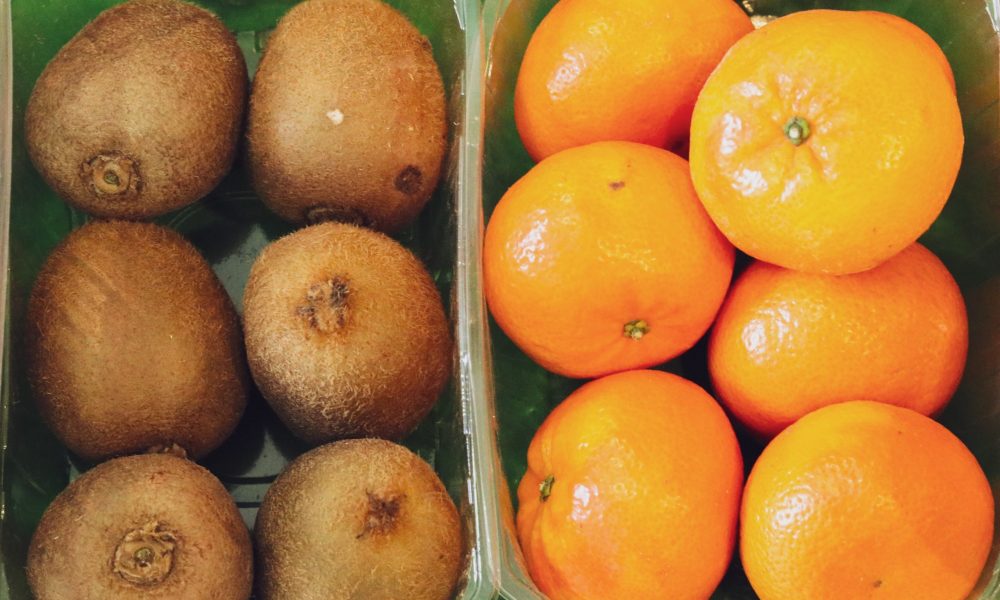
As for specific foods, citrus fruits, kiwis, strawberries, papayas, and green vegetables are the richest in vitamin C. Vitamin E rich foods include nuts, nut oils, seafood, avocados, and some vegetables.
Unsaturated fat, garlic (food or supplement), honey, or green tea (consumption or gargling) are also promising nutrition choices to support your immune system whether healthy or sick (12,37-42,89).
Ginger is another solid choice with antibacterial properties and helps with vomiting and stomach related symptoms (63-67).
Elderberry products (43-47) and hot soups/broths (48-50) also show deeply promising immune effects especially for those that are already sick.
While nothing you put in your mouth guarantees Coronavirus protection, what you eat day to day as well as during sickness can make a difference in your immune health and symptom relief/recovery.
This will likely hit a soft spot because for whatever reason, some people love alcohol more than their spouse, let alone their immune system. But seriously, get a grip. Alcohol is cool, but it’s not life-changing.
Anyways, based on the existing research, here’s what we can conclude when it comes to alcohol consumption and your immune system (58-62):
So do what you want with your life, but the financial costs and health drawbacks of drinking during a pandemic might not be in your best interest.
It’s hilarious when dorks say there’s nothing you can do to improve your immune system. The most obvious area that so many people lack is optimal sleep which is arguably more important than dietary choices.
Sleep is directly linked to your immune system. Suboptimal sleep quality and quantity basically means a weaker immune system resulting in impaired immunity, susceptibility to disease, and poorer recovery of symptoms (51-56).
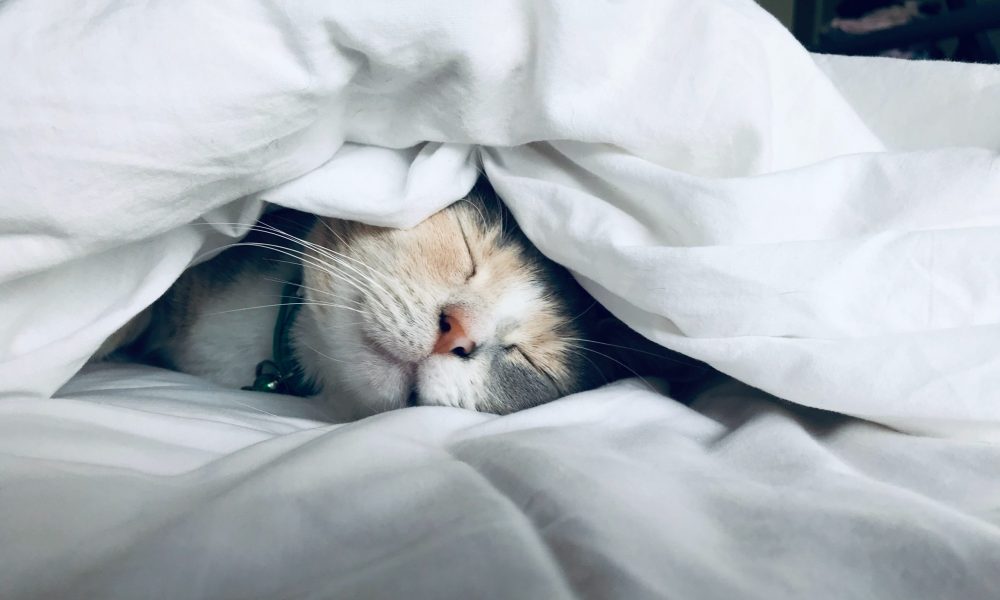
The goal for everyone should be to get a solid 7-9 hours of sleep per night (57). 6 might be ok with some rare exceptions, but research tells us anything less than seven exponentially increases your chances of the common cold (85).
So social distancing is cute and all, but imagine how much healthier and less diseased we’d all be if we just slept more instead of staying up stalking our exes on Instagram.
Like seriously, when is exercise not good for you? It’s not just something fit people do to look good naked and post vain selfies. Exercise literally exists to keep you alive longer. A review by Nieman et al found various strong links between exercise and immune health (68).
It found the following:
All in all, consistent exercise is extremely good for your immune system, just don’t overdo it by trying to copy the freakish 4-hour workouts of your favorite athletes (69,70). That’s when the stress becomes detrimental and will be counterproductive to your immune system.
This brings me to my next point which is stress. Excessive life stress can tank your immune system, especially psychological stress (71,72).
However, before you start stressing too much about stress, not all stress harms your immune system. Acute stress is fine and can even benefit your immune system, but chronic stress is what you should learn to manage (73,74).
For example, being a little anxious a couple hours before a big test is probably no big deal, but endlessly freaking out about who your ex-boyfriend is now dating is essentially poison for your immune system.
When in doubt, stress less and do it infrequently if any.
Some good ways to reduce and manage stress include exercising, sleeping, practicing gratitude, talking with a friend, experiencing nature, or breathing drills. Hugging dogs is a good idea too (75). Just wash your hands after doing so.
Grab my Lifter’s Guide to Managing Stress
Excessive body fat increases your chances of getting sick or hinder your ability to recover from sickness. Feelings will be hurt reading this, but the research is deeply clear. Obese individuals have deeply unhealthy immune systems caused by multiple mechanisms (76,77,82). In fact, we even have compelling research that obesity and metabolic diseases are an exceptionally strong risk factor for Covid-19 (83,86).
In fact, obesity doubles your chances of dying from Covid regardless of age (87).
Fortunately, as you lose excess body fat, your immune system gets healthier (78). Even with a suboptimal diet, losing weight especially in overweight or unhealthy individuals still improves your immune system (79).
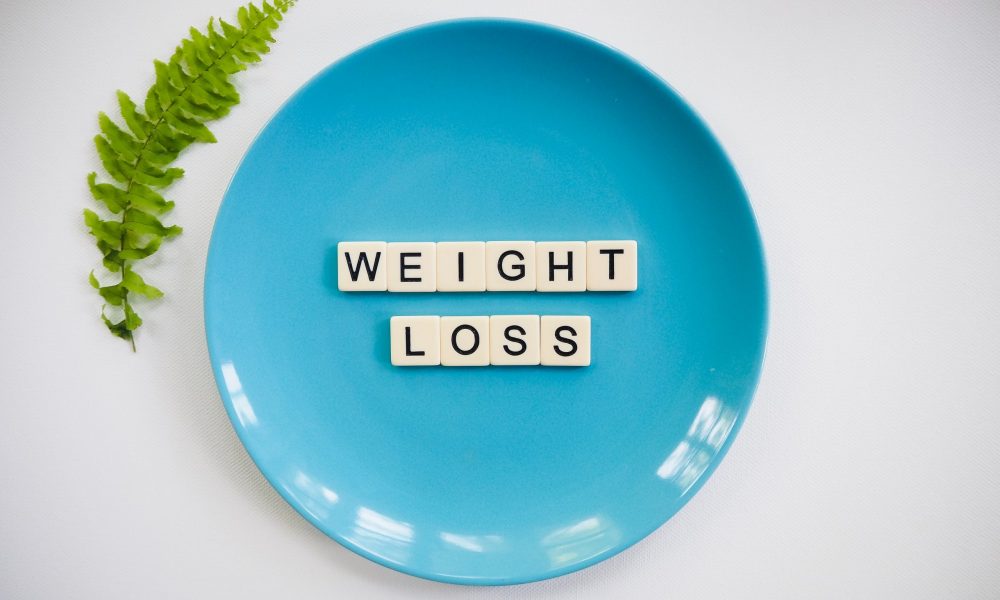
But if you couldn’t already tell, there is a limit to this. If you’re already lean, losing additional fat won’t further improve your immune system, in fact it might hurt it if you lose too much fat because having a certain percentage of body fat is optimal (80).
So going from shredded abs to extra shredded veiny abs might not be in your best interest during a pandemic. However, going from 40% body fat to 30% or 20% is a good idea. To ensure weight is actually coming off, doing everything on this list will help, but be sure to also track progress or get professional help if needed.
So Coronavirus or not, it never hurts to adjust your lifestyle to put your immune system in the best fighting position it can be. Your lifestyle literally shapes your immune system (84).
Here are the practical tips summarized into good old bullet points:
Now all of these tips are great, but you won’t notice much change if you’re not consistent. Like do you really think doing a couple of jumping jacks and eating a piece of celery for a day is doing much?
Make these parts of your lifestyle even after the pandemic is over. Nothing groundbreaking, but the mundane lifestyle changes we know we should be making is what has been proven to work.
Stay healthy my friend and I pray you don’t get sick.
Weyh, Christopher, et al. “Physical Activity and Diet Shape the Immune System during Aging.” MDPI, Multidisciplinary Digital Publishing Institute, 28 Feb. 2020, www.mdpi.com/2072-6643/12/3/622/htm.
Cohen S;Doyle WJ;Alper CM;Janicki-Deverts D;Turner RB; “Sleep Habits and Susceptibility to the Common Cold.” Archives of Internal Medicine, U.S. National Library of Medicine, pubmed.ncbi.nlm.nih.gov/19139325/.
Zhu L;She ZG;Cheng X;Qin JJ;Zhang XJ;Cai J;Lei F;Wang H;Xie J;Wang W;Li H;Zhang P;Song X;Chen X;Xiang M;Zhang C;Bai L;Xiang D;Chen MM;Liu Y;Yan Y;Liu M;Mao W;Zou J;Liu L;Chen G;Luo P;Xiao B;Zhang C;Zhang Z;Lu Z;Wang J;Lu H;Xia X;Wang D;Liao X;Peng G;Ye P; “Association of Blood Glucose Control and Outcomes in Patients with COVID-19 and Pre-Existing Type 2 Diabetes.” Cell Metabolism, U.S. National Library of Medicine, pubmed.ncbi.nlm.nih.gov/32369736/.
Czernichow, Sébastien, et al. “Obesity Doubles Mortality in Patients Hospitalized for SARS‐CoV‐2 in Paris Hospitals, France: a Cohort Study on 5795 Patients.” Wiley Online Library, John Wiley & Sons, Ltd, 20 Aug. 2020, onlinelibrary.wiley.com/doi/abs/10.1002/oby.23014.
J;, Wang MX;Win SS;Pang. “Zinc Supplementation Reduces Common Cold Duration among Healthy Adults: A Systematic Review of Randomized Controlled Trials with Micronutrients Supplementation.” The American Journal of Tropical Medicine and Hygiene, U.S. National Library of Medicine, pubmed.ncbi.nlm.nih.gov/32342851/.
“Zinc Supplementation and Immune Factors in Adults: a Systematic Review and Meta-Analysis of Randomized Clinical Trials.” Taylor & Francis, www.tandfonline.com/doi/full/10.1080/10408398.2020.1862048.
Sign up for AwesomeFitnessScience Weekly. You’ll get juicy insider secrets, updates, and stories.

Think of your most stubborn muscle group that’s so painfully small despite how hard you train it. Perhaps, it’s your narrow back, your chopstick calves, or your flat butt.
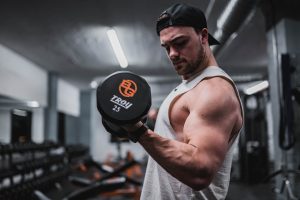
Strength training improves your life in so many ways that not doing it is like begging for a suboptimal existence. And no, that’s not an exaggeration. Look at the research below my friend.
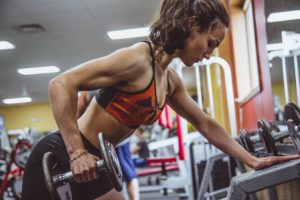
Hey ladies, you have so much going for you, but if I’m being honest, many of you avoid lifting weights to your detriment.